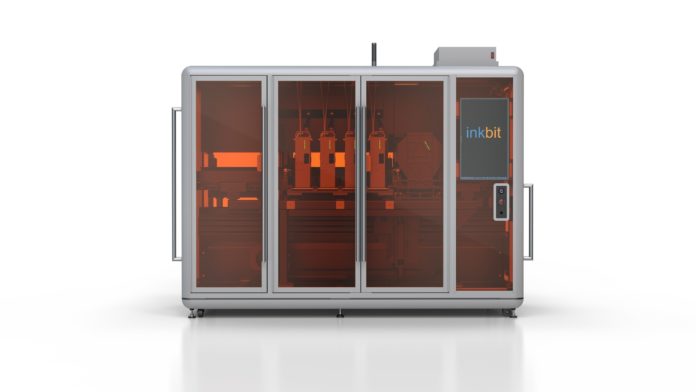Massachusetts-based manufacturer Inkbit has released its Vista Additive Manufacturing machine with closed-loop feedback control and multi-material capabilities.
The company was spun out of MIT in 2017. In four years of activity, it secured $15 million in equity investments from investors such as Stratasys, DSM Venturing, Ocado, 3M, IMA and Saint-Gobain. Inkbit also received significant funding from DARPA and NSF for the development of its core technology and applications in the medical field.
At the heart of the Inkbit Vista, we find a proprietary Vision-Controlled Jetting solution and multi-material design software that enables manufacturers to move from prototyping to production.
The Vision-Controlled Jetting (VCJ) solution
Operators who use VCJ can perform in-process voxel-level control to meet the reliability and performance demands of volume manufacturing. The manufacturer explains that the solution converges advanced computational techniques with a scalable hardware architecture and materials chemistries inaccessible before.
Three main benefits are highlighted for users of the Inkbit Vista: in addition to the ability to capture voxel-by-voxel 3D scan data of the print process at high-speed, modifying this way each layer in real-time, the VCJ solution processes high performance polymers in an automated workflow. This means that it allows fast, and non-hazardous post-processing of parts, decreasing therefore costs linked to lost materials, labor, and equipment on the one hand; on the other hand, it integrates directly into existing manufacturing systems. Lastly, high performance polymers the printer can process are often a combination of resin 3D printing precision with production-grade materials. Called acrylates and methacrylates, Inkbit ensures the materials can be completely removed, opening up a new field of quality and long-lasting parts.
“We are thrilled to launch Inkbit’s Additive Manufacturing System and offer a unique, rapidly deployable 3D printing solution to companies looking to adopt digital manufacturing,” said Davide Marini, co-founder and CEO at Inkbit. “Today, engineers are often using 3D printing technology to make prototypes, but limitations in materials and high costs make end-use product production difficult. At Inkbit, we’re on a mission to disrupt that notion and create a technology that provides fast printing capabilities with unmatched design freedom and reliability for even the most demanding applications and environments.”
Remember, you can post job opportunities in the AM Industry on 3D ADEPT Media free of charge or look for a job via our job board. Make sure to follow us on our social networks and subscribe to our weekly newsletter : Facebook, Twitter, LinkedIn & Instagram ! If you want to be featured in the next issue of our digital magazine or if you hear a story that needs to be heard, make sure to send it to contact@3dadept.com


